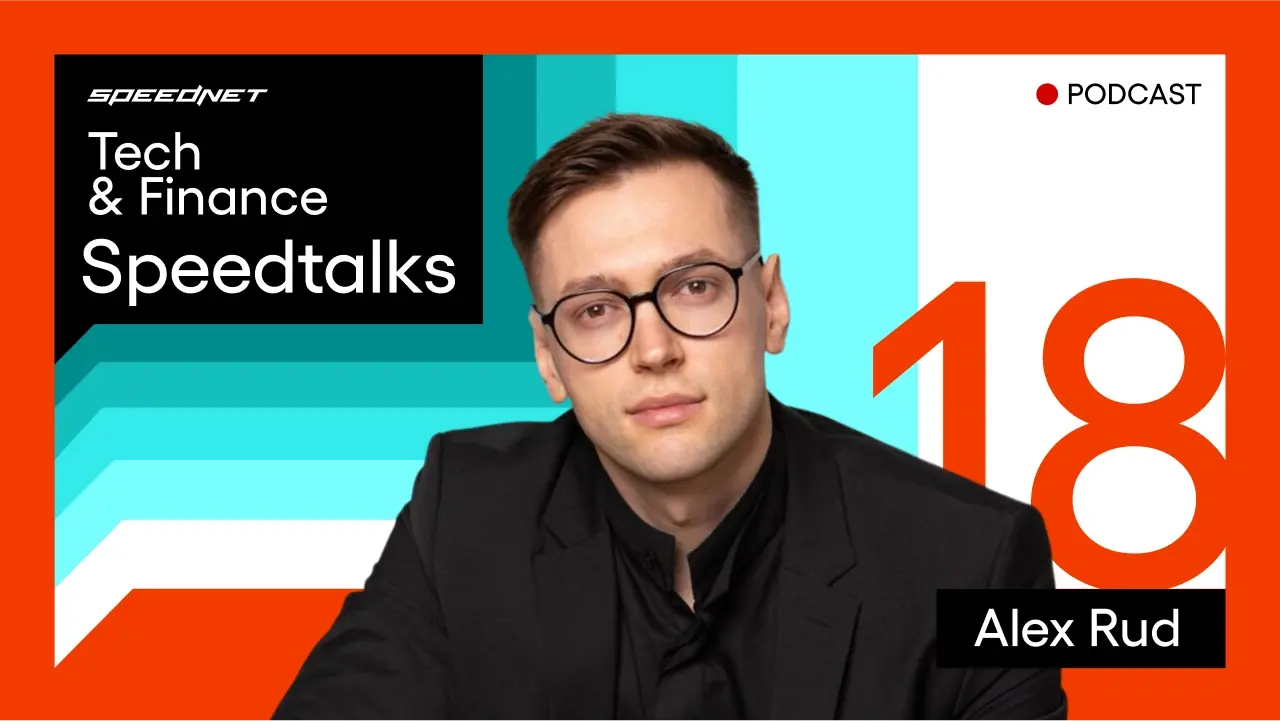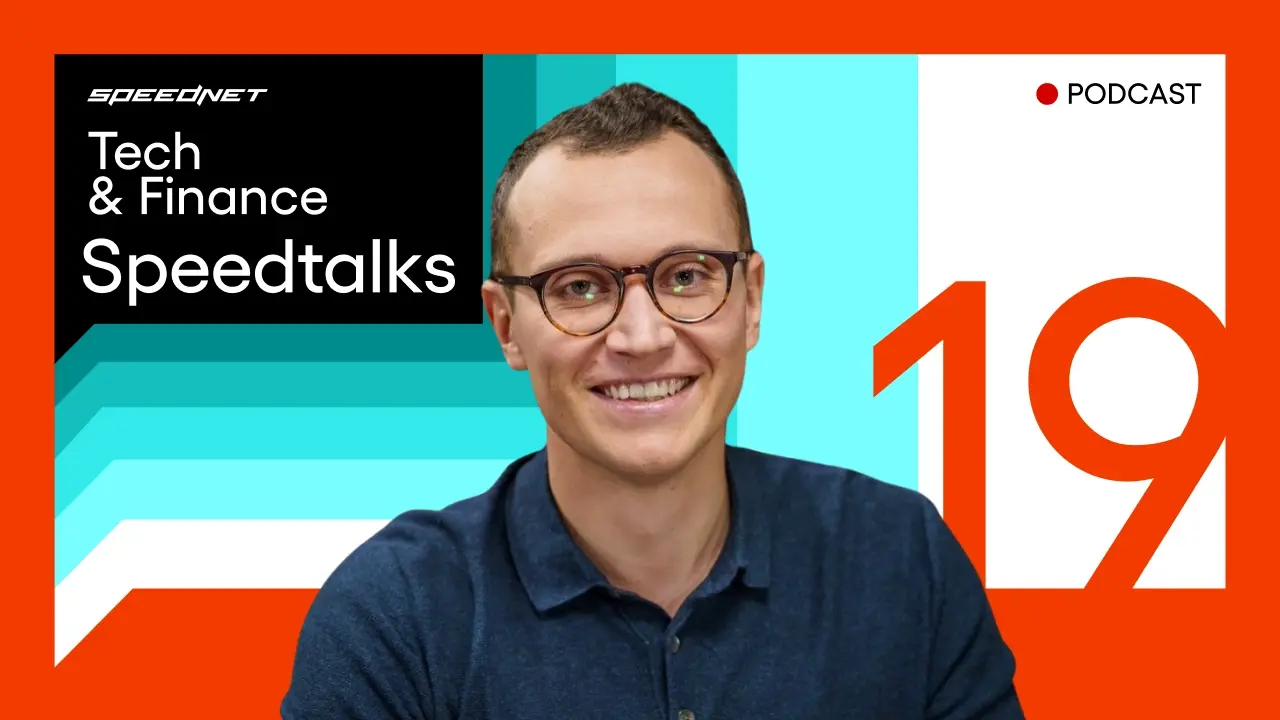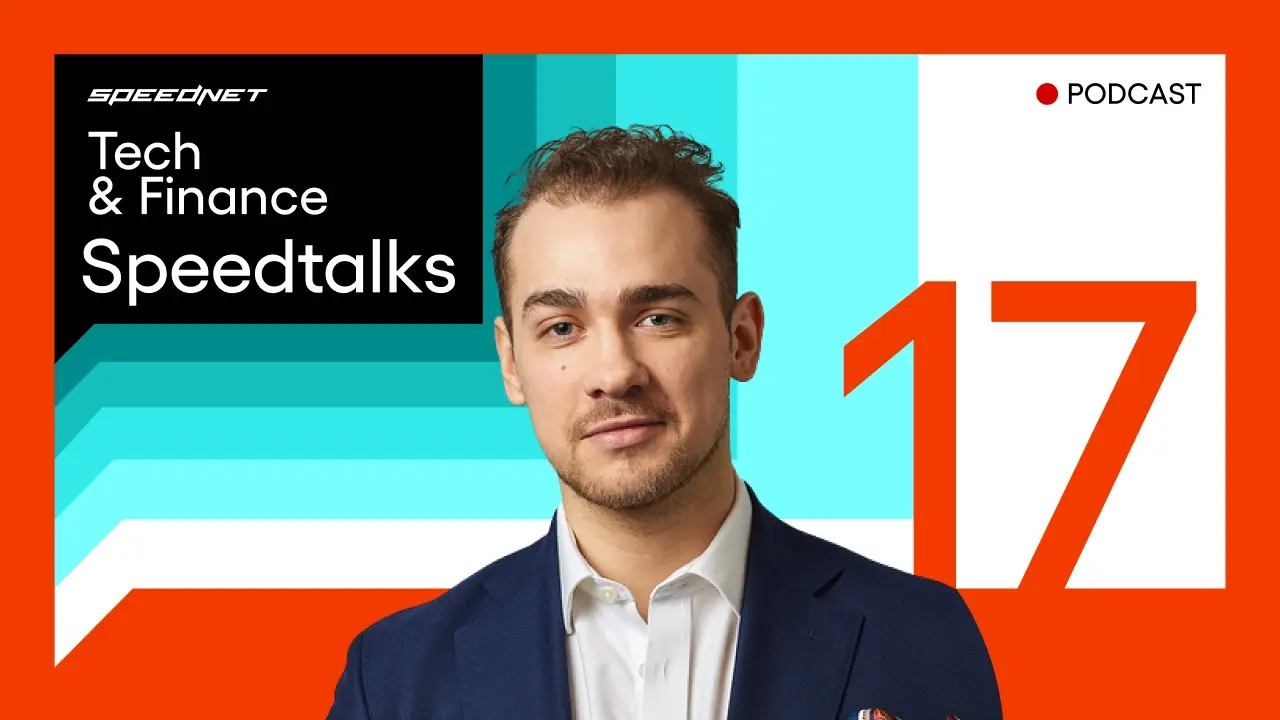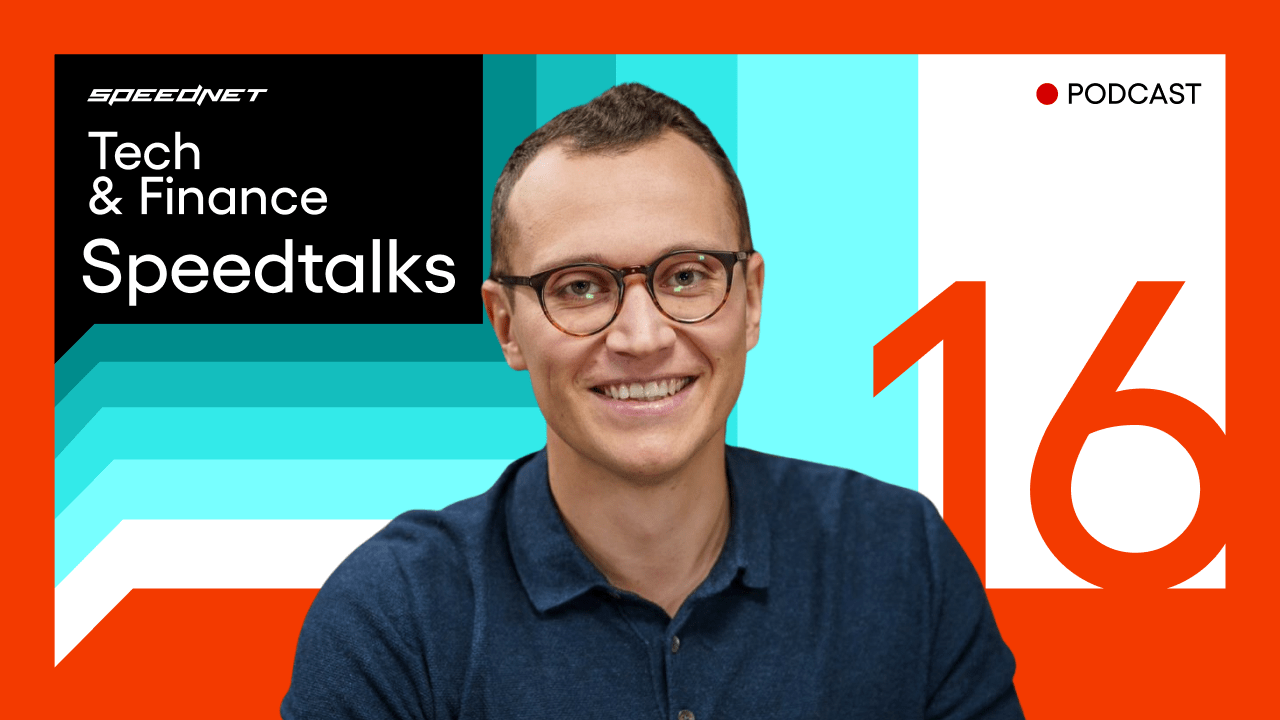018: Building and scaling fintech ventures with Alex Rud


A Speedtalks interview with Alex Rud, CEO of xPaid
Michał Grela: Hi, hello and welcome to another episode of Speedtalks. My guest today is Alex Rud, CEO at XPaid. We’ll be diving into what it means to be a serial entrepreneur in the fintech space. Alex – great to have you here today. Thanks for joining me.
Alex Rud: Thank you for the invitation. It was a pleasure to meet you at the event.
Michał Grela: We met at MONEY 20/20, the go-to place for everyone in fintech, and that’s how we first connected. From the very first moment, I knew I had to invite you on the podcast to understand what it’s like to be, well, not a serial killer, but a serial entrepreneur in fintech! So tell us – what have you accomplished so far, being in your late 20s or early 30s, and already a venture builder?
Alex Rud: It’s a pleasure to share my story. Right now, I’m managing and also owning a group of companies under the xPaid brand. We position ourselves as an OTC desk – we help clients buy and sell crypto in large volumes. One of our main products is Digital Asset as a Service.
Our mission is to offer technical and white-label solutions for fintechs, banks, payment service providers, or e-money institutions who want to go crypto-friendly. Our solution allows these companies to enable crypto services for their customers – without touching the crypto themselves, which keeps them compliant in front of regulators.
I also run a consultancy firm called FinTech Capital, which supports financial companies in obtaining or selling licences, building payment infrastructure, and managing compliance. We help with sourcing ML officers, creating policies, and ensuring compliance with the EU’s MiCA regulation.
Additionally, I’ve invested in a physical currency exchange business based in Warsaw. It’s not my main focus – more of a strategic investment – but it’s growing steadily. We’ve opened a second branch in Kraków, and we’re planning further expansion across Europe.
So, in short, that’s what I’ve been building over the past four years.
The $1M goal and the leap into fintech
Michał Grela: You’re tackling fintech from multiple angles – but why fintech? How did you get into it?
Alex Rud: Good question. It actually started with a personal goal: I wanted to earn $1 million in one year. Before that, I’d run various businesses, with mixed results. I was focusing too much on “value” and sometimes even doing more charity than business.
But in 2021, I decided to focus purely on building a profitable business – of course, one that aligns with my moral principles. That’s when I realised crypto was a space worth exploring. It was new, growing fast, and easier to enter than traditional banking, which often requires complex licences and connections.
I found a technical co-founder, he built a website, and I focused on customer acquisition. From there, I focused on revenue — something I learned during my time in a U.S. accelerator. The American mindset is revenue-first, and I adopted that. If you prioritise income, everything else follows: team, product, even customer value. You’ll have the resources to hire great people, invest in marketing, and build something meaningful.
Fintech appealed to me because it’s limitless. There are no physical products to manage — no warehouses full of chairs. You deal directly with money. Plus, you meet highly talented, ambitious people in fintech. I no longer need to “network” per se – just doing business naturally connects me with amazing individuals.
Regulation vs innovation
Michał Grela: You chose a very innovation-driven space but how do you deal with the heavy regulation? You’re not a bank, but the industry still faces intense scrutiny. How do you deal with that? Is that a necessity? I know you have a consultancy now that helps with it. Is it because you first encountered issues yourself with those regulatory constraints?
Alex Rud: Regulation can definitely kill innovation if not approached right. One of my first decisions in fintech was to obtain a financial licence in Poland — even though other EU countries like Cyprus, Malta, Lithuania, and Estonia are more regulatory-friendly.
It was risky and difficult. Communicating with the Polish regulator was tough, but I took the risk. Eventually, I sold that company to a major financial group. It wasn’t a unicorn, but it was a successful exit and a valuable experience.
That experience motivated me to launch FinTech Capital here in Poland. I could’ve started it in a more welcoming country, I could have done it in Malta or the Baltics – it would have been easier. But I wanted to prove that Poland can be a fintech-friendly hub. It’s hard, sometimes even crazy but if more businesses take the risk, we might collectively shape how regulators respond to fintech innovation.
Another part is, I have a product company, right? So it’s not a consultancy. As an owner of a product company, I have to think about risks and I see some risks working only in European Union and I’m just trying to diversify. I’m mitigating risk by applying for licences in Canada, Dubai, and Kazakhstan. Diversification is key. It’s just math – calculate risk and opportunity, and go where the balance makes sense.
Lessons from scaling a fintech venture
Michał Grela: What lessons would you share with someone looking to replicate your success?
Alex Rud: For sure, there are a lot of lessons which I learned during these three years, especially being immigrant in the European Union and learning from the scratch how everything works here.
One key lesson is that at the beginning, revenue matters more than the product. You need to talk to people, find real problems, and start solving them.
People are generally open to sharing their challenges. If someone approached me and said they had a strong background and asked about my pain points, I’d tell them: “I’m struggling to exchange crypto to dollars due to SWIFT complications.” That person could then go to events, connect with banks, and potentially make money by solving that one problem for me and others.
Once you see recurring patterns – like 70% of clients asking for the same thing – that’s when you start building a product. That’s what I was doing. Automate, scale, reduce manual work.
Now, my challenge is scaling operations. We need internal systems to ensure we don’t miss opportunities. If we say something publicly about a service, we must be able to deliver it flawlessly. We’re also investing in AI to stay ahead of competitors and improve efficiency.
I’ve also started a peer-to-peer mastermind group – eight people, similar income levels and values, helping each other throughout the year. Ideally, I surround myself with people smarter than me so I can absorb their knowledge. It’s a form of structured cheating, in a good way.
Pivoting
Michał Grela: It’s really good to listen to advice of people who are where you want to be.
Alex Rud: Exactly. So another key takeaway would be: be flexible. Be open to pivoting. If your original plan doesn’t match market needs, change it. Don’t get stuck in your original idea or pitch deck. Pivot if needed. Focus on solving actual problems and making money. Once you’ve got traction and cash flow, you can invest in building the product you really envision.
What’s next in fintech?
Michał Grela: Let’s look ahead. Where do you think fintech is heading? What’s the next big thing?
Alex Rud: Stablecoins are definitely growing. The volumes of USDT and USDC are constantly growing. We have plenty of banks which are already integrating solutions which helps you to send money with stable coins without using swift. Institutions like Standard Chartered are using platforms like Zodiac Markets to access crypto liquidity for international transfers.
The next step could be foreign exchange platforms for stablecoins – imagine exchanging a Polish złoty stablecoin directly for a dirham stablecoin, without converting to USDC or USDT first. That would drastically reduce costs.
Local stablecoins will also be big, especially in countries with strong remittance flows. Banks and fintechs in those markets can tap into huge opportunities by offering stablecoin-based payment rails.
Besides that, we still need better tools. Many wallets are overly complex. We’ve developed technology that optimises USDT transactions up to 70% cheaper on Tron, for example. But many wallets don’t offer that. Even simple things like buying crypto with good fiat rates are still too complicated for average users.
So yes, new innovation is coming but there’s also massive potential in just improving what already exists.
Binance and Kraken now offer ‘Pro’ and ‘Simple’ modes because users are overwhelmed. When I sent a wallet link to my sister, she panicked – too many buttons. We need simpler tools for everyday users.
Michał Grela: That’s fascinating. So in short, the market isn’t just about the next shiny thing – it’s also about making today’s tools smarter and more efficient.
Alex Rud: Exactly. As the user base grows, there’s more demand for better, simpler, and more cost-effective solutions.
Bonus question
Michał Grela: Final bonus question. I know you have a passion for classic Porsches. Tell us more about that.
Alex Rud: Yes, I love technology. I carry gadgets with me everywhere – cameras, AI recording devices. When it comes to cars, Porsche stands out for its technology, engineering legacy.
Imagine a book written by 10,000 top engineers over 70 years – that’s a Porsche. It’s not just a car; it’s a masterpiece of engineering. I started with a 924, now I’m planning to get a 944. I’ll also get a new model soon because, let’s face it, the old ones are good for collecting, but not for everyday use as don’t have air conditioning!
So I’m approaching it from both ends – historical appreciation and modern usability.
Michał Grela: That’s amazing, congratulations. Thank you, Alex, for your time – I thoroughly enjoyed this conversation. And to all our listeners, I hope this episode inspired you. If you’re looking to launch your own fintech venture, there’s a lot to learn from Alex’s journey. Take care and see you next time!
Alex Rud: Thanks, see you soon! And if anyone has a question – you can reach me everywhere, I’m super active on social media under Alex Rud. I also have a team who helps me, so we’re actively answering all the questions we get.




